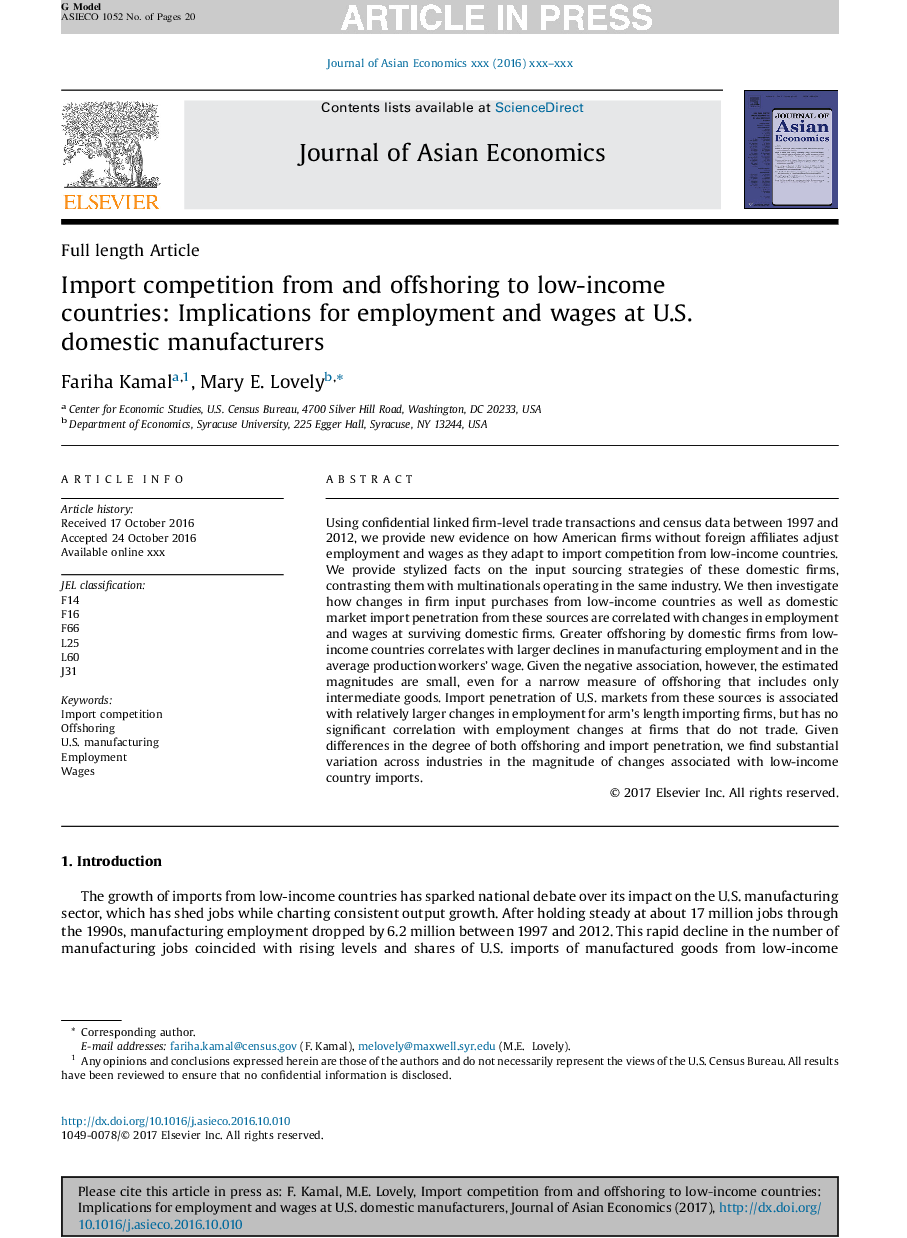| Article ID | Journal | Published Year | Pages | File Type |
|---|---|---|---|---|
| 5087172 | Journal of Asian Economics | 2017 | 20 Pages |
Abstract
Using confidential linked firm-level trade transactions and census data between 1997 and 2012, we provide new evidence on how American firms without foreign affiliates adjust employment and wages as they adapt to import competition from low-income countries. We provide stylized facts on the input sourcing strategies of these domestic firms, contrasting them with multinationals operating in the same industry. We then investigate how changes in firm input purchases from low-income countries as well as domestic market import penetration from these sources are correlated with changes in employment and wages at surviving domestic firms. Greater offshoring by domestic firms from low-income countries correlates with larger declines in manufacturing employment and in the average production workers' wage. Given the negative association, however, the estimated magnitudes are small, even for a narrow measure of offshoring that includes only intermediate goods. Import penetration of U.S. markets from these sources is associated with relatively larger changes in employment for arm's length importing firms, but has no significant correlation with employment changes at firms that do not trade. Given differences in the degree of both offshoring and import penetration, we find substantial variation across industries in the magnitude of changes associated with low-income country imports.
Related Topics
Social Sciences and Humanities
Economics, Econometrics and Finance
Economics and Econometrics
Authors
Fariha Kamal, Mary E. Lovely,
